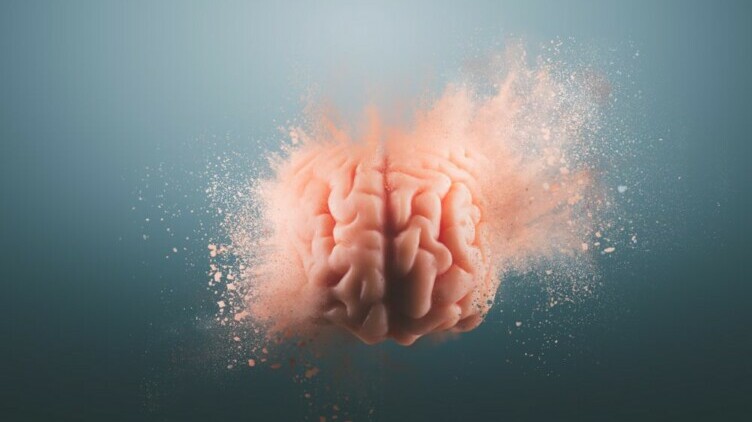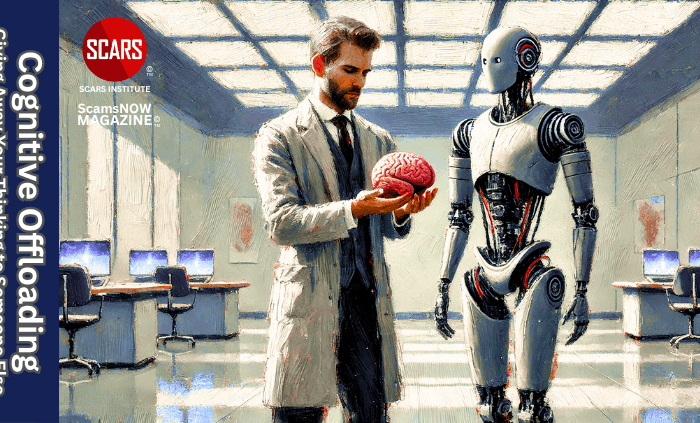Trauma Recollection/Traumatic Flashbacks
Understanding Scam Victim Trauma Recollection, Flashbacks, & Memories
Recovery Psychology
Authors:
• Vianey Gonzalez B.Sc(Psych) – Licensed Psychologist Specialty in Crime Victim Trauma Therapy, Neuropsychologist, Certified Deception Professional, Psychology Advisory Panel & Director of the Society of Citizens Against Relationship Scams Inc.
• Tim McGuinness, Ph.D. – Anthropologist, Scientist, Director of the Society of Citizens Against Relationship Scams Inc.
Trauma Recollection/Traumatic Flashbacks Or Memories And The Effects That It Has On Scam Victims – PTSD And Recovery Psychology
Most Scam Victims Suffer from some form of Trauma, but for some, this can be the Retriggering of the Original Trauma Over and Over!
While flashbacks are a well-known symptom of Post-Traumatic Stress Disorder (PTSD), it’s not the only way trauma can manifest itself – they can also be Trauma Recollection.
Scam victims can certainly re-experience their trauma simply by remembering the crime without meeting the full criteria for PTSD.
Two Main Scam Victim Memory Manifestation Events or Types
- Trauma Recollection (Remembering the Trauma)
- Trauma Flashbacks (PTSD Flashbacks)
Here’s how it can differ:
Scam Victim PTSD Flashbacks:
- Sensory Immersion: They feel incredibly real and present, flooding the person with sights, sounds, smells, and even physical sensations from the traumatic event.
- Intrusive and Uncontrollable: They occur spontaneously and can be difficult to escape, often triggered by seemingly unrelated things.
- Dissociation: The person may feel disconnected from their surroundings or themselves, as if they’re reliving the trauma in a different reality.
Scam Victim Trauma Recollection:
- Mental Replay: The memories might be vivid and replaying in the mind, but the experience usually remains within the realm of thought.
- Triggered by Reflection: Re-experiencing often occurs intentionally, through actively thinking about the event or encountering reminders of it.
- Emotional Distress: While emotionally charged, it may not involve the same level of physical and psychological flooding as PTSD flashbacks.
Trauma Recollection Additional factors:
- Severity of the Trauma: The severity of the scam and individual differences in coping mechanisms can influence how intensely the memories resurface.
- Frequency of Recalling: The frequency of revisiting the event in thought can also affect its impact on the individual.
- Support System: Having a supportive network can help individuals process their memories and manage emotional distress.
It’s important to remember that both PTSD flashbacks and scam-related trauma recollections can be distressing and have a significant impact on the person’s well-being.
Trauma Recollection in Scam Victims
Trauma recollection, unlike full-blown PTSD flashbacks, refers to the involuntary or intentional recall of a traumatic event in a way that feels emotionally and psychologically distressing. For scam victims, this can be a significant hurdle in their recovery journey.
How Trauma Recollection Works:
- Triggering Event: A seemingly innocuous sight, sound, or even emotion can trigger a memory of the scam or moments after the scam. This could be anything from seeing a familiar logo to encountering someone who reminds you of the scammer.
- Memory Replay: The mind replays the event, often vividly, bringing back the emotional distress and cognitive distortions experienced at the time.
- Emotional Response: The victim may experience a range of emotions, including anger, sadness, fear, and anxiety. These emotions can be intense and overwhelming. In fact, they can be as intense as the original experience since the brain does not know the difference emotionally between the original event and the memory.
Trauma Recollection – Where it Manifests in the Brain
- Amygdala: This emotional hub plays a key role in processing and storing fear. Trauma-related memories are often stored intensely in the amygdala, leading to strong emotional reactions when triggered.
- Hippocampus: This area is responsible for memory formation and retrieval. Trauma can disrupt how the hippocampus encodes and retrieves memories, leading to fragmented or distorted recollections. It can even lead to selective amnesia caused by a trauma.
- Prefrontal Cortex: This area is involved in cognitive control and emotional regulation. In trauma recollection, the prefrontal cortex may struggle to regulate emotional responses to the memories, leading to distress.
Trauma Recollection Impact on Recovering Victims:
- Emotional Distress: Trauma recollection can be a significant source of emotional pain, triggering anxiety, depression, and even panic attacks.
- Cognitive Difficulties: The event can be replayed in a way that feels disorienting and confusing, impacting concentration, sleep, and overall well-being.
- Trigger Avoidance: Victims may develop coping mechanisms like avoiding anything associated with the scam, which can limit their daily activities and social interactions. This can derail their recovery and even lead to more serious psychological issues.
- Loss of Trust: The betrayal experienced in a scam can damage the victim’s ability to trust others, impacting relationships and personal safety.
However, it’s important to remember that trauma recollection is not a sign of weakness. It’s a natural part of the healing process, and there are ways to manage it effectively.
Tips for Coping with Trauma Recollection:
- Grounding Techniques: When triggered, practice mindfulness exercises or deep breathing to calm your body and mind.
- Talk About The Experience: When a traumatic memory is triggered it is very important to talk about the experience of the moment, meaning about remembering, but also about the original event. This is an excellent way to help the mind process both experiences and reduce the power they have over the mind.
- Challenge Negative Thoughts: Identify and challenge any distorted thoughts or beliefs about the scam that may be causing distress.
- Seek Professional Help: Professionally managed support groups and therapists can provide support and guidance in processing the trauma and developing healthy coping mechanisms.
- Focus On Self-Care: Prioritize activities that promote your physical and mental well-being, such as exercise, relaxation techniques, and spending time with loved ones.
Remember
Remember, healing takes time and patience. Be kind to yourself, and don’t hesitate to seek help when needed. With the right support and resources, you can overcome the challenges of trauma recollection and build a brighter future.
More:
- Selective Amnesia and Scam Victim Psychological Trauma 2023 (scamsnow.com)
- A Small Drop Of Insight About Victims’ Trauma (scamsnow.com)
- Anger & Self-Radicalization – Recovery Psychology 2023 (scamsnow.com)
- Scam Victim Empathy – How It Is Lost And How It Comes Back In Time – Recovery Psychology 2023 (scamsnow.com)
- Fear Of Contagion: Why Scam Victims Are Harshly Judged And Blamed 2023 (scamsnow.com)
- Toxic Self-Narratives That Feeds Depression in Scam Victims 2023 (scamsnow.com)
- Understanding and Treating Unwanted Trauma Memories in Posttraumatic Stress Disorder – PMC (nih.gov)
- The 7 SURPRISING Ways To Heal Trauma WITHOUT MEDICATION | Dr. Bessel Van Der Kolk [YouTube]
SCARS Resources:
- For New Victims of Relationship Scams newvictim.AgainstScams.org
- Subscribe to SCARS Newsletter newsletter.againstscams.org
- Sign up for SCARS professional support & recovery groups, visit support.AgainstScams.org
- Find competent trauma counselors or therapists, visit counseling.AgainstScams.org
- Become a SCARS Member and get free counseling benefits, visit membership.AgainstScams.org
- Report each and every crime, learn how to at reporting.AgainstScams.org
- Learn more about Scams & Scammers at RomanceScamsNOW.com and ScamsNOW.com
- Global Cyber Alliance ACT Cybersecurity Tool Website: Actionable Cybersecurity Tools (ACT) (globalcyberalliance.org)
- Self-Help Books for Scam Victims are at shop.AgainstScams.org
- Donate to SCARS and help us help others at donate.AgainstScams.org
- Worldwide Crisis Hotlines: International Suicide Hotlines – OpenCounseling : OpenCounseling
- Campaign To End Scam Victim Blaming – 2024 (scamsnow.com)
-/ 30 /-
What do you think about this?
Please share your thoughts in a comment below!
More ScamsNOW.com Articles
-/ 30 /-
What do you think about this?
Please share your thoughts in a comment above!
SCARS LINKS: AgainstScams.org RomanceScamsNOW.com ContraEstafas.org ScammerPhotos.com Anyscam.com ScamsNOW.com
reporting.AgainstScams.org support.AgainstScams.org membership.AgainstScams.org donate.AgainstScams.org shop.AgainstScams.org
youtube.AgainstScams.org linkedin.AgainstScams.org facebook.AgainstScams.org
ARTICLE RATING
TABLE OF CONTENTS
CATEGORIES
MOST POPULAR COMMENTED ARTICLES
POPULAR ARTICLES
U.S. & Canada Suicide Lifeline 988
![NavyLogo@4x-81[1]](https://scamsnow.com/wp-content/uploads/2025/04/NavyLogo@4x-811.png)
ARTICLE META
WHAT PEOPLE ARE TALKING ABOUT LATEST SITE COMMENTS
See Comments for this Article at the Bottom of the Page
on Scam Victims Use Work To Avoid Healing: “The last 6 years have been the most difficult of my life. The pandemic, having both parents in the hospital…” Jun 29, 18:38
on Entitlement Mentality And How Scam Victims Often Lose Their Path To Recovery – 2024: “Thank you for this discussion of entitlement. I can see from the descriptions listed that I have not felt entitlement.…” Jun 29, 18:22
on Samurai Wisdom and Rituals for Clearing the Mind After Scam Trauma – 2025 – [VIDEOS]: “A great guide on how to move forward in our recovery process with a calm mind, cleansed on an ongoing…” Jun 28, 07:34
on Delayed Gratification and Patience in Scam Victim Recovery – 2025 – [VIDEOS]: “We want to recover quickly and… we make new mistakes. How not to speed up the recovery process, how to…” Jun 28, 06:41
on The Unique Injury Of Betrayal Trauma On Scam Victims – 2024: “Primarily because you did not see it coming” Jun 27, 23:57
on Changes In A Scam Victim’s Life: “I really detest the way my trust in others has been affected by the scamming I went through. I used…” Jun 27, 14:47
on The Unique Injury Of Betrayal Trauma On Scam Victims – 2024: “Betrayal Trauma is the worst feeling ever. Why does it seem so much worse when a scammer does that to…” Jun 27, 14:34
on EMDR Therapy For Scam Victims’ Trauma – A Part Of The Recovery Process For Many – 2024: “Very comprehensive article explaining all aspects of EMDR. I’d only heard of it before and now I have a much…” Jun 26, 19:01
on Forgiving Yourself After Surviving a Romance or Investment Scam – 2025: “Thank you for this valuable article. Self-forgiveness was for me the biggest step that led to my recovery. That also…” Jun 26, 17:28
on Counseling And Your Native Language: “These points make perfect sense. I can’t imagine trying to express complex emotions in a second language. I realize many…” Jun 26, 16:05
on Thought-Terminating Cliches – How What You and Others Say Stops Critical Thinking and Recovery for Scam Victims – 2025: “I didn’t realize that these “innocent phrases” clichés ending thoughts, can have such effect / negative -inhibiting / on our…” Jun 26, 14:48
on Scam Victim Resistance In Support Groups Therapy Or Counseling Can Destroy Opportunities For Recovery – 2024: “Working with either a support group or therapist to me means a self commitment to actively participating in the therapy.…” Jun 24, 21:01
on ‘I Just Want To Forget It’ – Denial & Avoidance Are Natural But Will Not Help Scam Victims On Their Path To Recovery From Scams – 2024: “My financial loss, the shock and betrayal of the crime ending all combined to fray my nerves and spend hours…” Jun 24, 20:10
on You Hate Being Told What To Do? How Your Rebellious Mentality Can Sabotage Your Recovery – 2025: “I am a bit of a rebel, and the moment someone tells me to do something, worse, does it even…” Jun 24, 15:04
on You Hate Being Told What To Do? How Your Rebellious Mentality Can Sabotage Your Recovery – 2025: “You are very welcome” Jun 24, 03:01
on You Hate Being Told What To Do? How Your Rebellious Mentality Can Sabotage Your Recovery – 2025: “This is a great article, which makes perfect sense as to why anyone would resist the help offered to them.…” Jun 23, 20:01
on Scam Victims’ Responsibilities – 2021 [Updated 2025]: “Thank you for this article. As I continue my journey, I focus on the here and now and let the…” Jun 21, 16:26
on Scam Victims Avoid Or Escape The Aftermath Of Scams – How Denial And Distraction Avoid Confronting Reality – 2024: “In the earliest days after my crime I felt powerless, helpless and weak. I had been through so much in…” Jun 21, 14:46
on Problems and Opportunities – Thoughts on Psychological Reframing – 2025: “An article that really helped me look at the problems in my life from a different point of view and…” Jun 21, 14:42
Important Information for New Scam Victims
Please visit www.ScamVictimsSupport.org – a SCARS Website for New Scam Victims & Sextortion Victims
SCARS Institute now offers a free recovery program at www.SCARSeducation.org
Please visit www.ScamPsychology.org – to more fully understand the psychological concepts involved in scams and scam victim recovery
If you are looking for local trauma counselors, please visit counseling.AgainstScams.org
If you need to speak with someone now, you can dial 988 or find phone numbers for crisis hotlines all around the world here: www.opencounseling.com/suicide-hotlines
Statement About Victim Blaming
Some of our articles discuss various aspects of victims. This is both about better understanding victims (the science of victimology) and their behaviors and psychology. This helps us to educate victims/survivors about why these crimes happened and not to blame themselves, better develop recovery programs, and help victims avoid scams in the future. At times, this may sound like blaming the victim, but it does not blame scam victims; we are simply explaining the hows and whys of the experience victims have.
These articles, about the Psychology of Scams or Victim Psychology – meaning that all humans have psychological or cognitive characteristics in common that can either be exploited or work against us – help us all to understand the unique challenges victims face before, during, and after scams, fraud, or cybercrimes. These sometimes talk about some of the vulnerabilities the scammers exploit. Victims rarely have control of them or are even aware of them, until something like a scam happens, and then they can learn how their mind works and how to overcome these mechanisms.
Articles like these help victims and others understand these processes and how to help prevent them from being exploited again or to help them recover more easily by understanding their post-scam behaviors. Learn more about the Psychology of Scams at www.ScamPsychology.org
SCARS INSTITUTE RESOURCES:
If You Have Been Victimized By A Scam Or Cybercrime
♦ If you are a victim of scams, go to www.ScamVictimsSupport.org for real knowledge and help
♦ Enroll in SCARS Scam Survivor’s School now at www.SCARSeducation.org
♦ To report criminals, visit https://reporting.AgainstScams.org – we will NEVER give your data to money recovery companies like some do!
♦ Follow us and find our podcasts, webinars, and helpful videos on YouTube: https://www.youtube.com/@RomancescamsNowcom
♦ Learn about the Psychology of Scams at www.ScamPsychology.org
♦ Dig deeper into the reality of scams, fraud, and cybercrime at www.ScamsNOW.com and www.RomanceScamsNOW.com
♦ Scam Survivor’s Stories: www.ScamSurvivorStories.org
♦ For Scam Victim Advocates visit www.ScamVictimsAdvocates.org
♦ See more scammer photos on www.ScammerPhotos.com
You can also find the SCARS Institute on Facebook, Instagram, X, LinkedIn, and TruthSocial
Psychology Disclaimer:
All articles about psychology and the human brain on this website are for information & education only
The information provided in this and other SCARS articles are intended for educational and self-help purposes only and should not be construed as a substitute for professional therapy or counseling.
Note about Mindfulness: Mindfulness practices have the potential to create psychological distress for some individuals. Please consult a mental health professional or experienced meditation instructor for guidance should you encounter difficulties.
While any self-help techniques outlined herein may be beneficial for scam victims seeking to recover from their experience and move towards recovery, it is important to consult with a qualified mental health professional before initiating any course of action. Each individual’s experience and needs are unique, and what works for one person may not be suitable for another.
Additionally, any approach may not be appropriate for individuals with certain pre-existing mental health conditions or trauma histories. It is advisable to seek guidance from a licensed therapist or counselor who can provide personalized support, guidance, and treatment tailored to your specific needs.
If you are experiencing significant distress or emotional difficulties related to a scam or other traumatic event, please consult your doctor or mental health provider for appropriate care and support.
Also read our SCARS Institute Statement about Professional Care for Scam Victims – click here
If you are in crisis, feeling desperate, or in despair, please call 988 or your local crisis hotline.
More ScamsNOW.com Articles
A Question of Trust
At the SCARS Institute, we invite you to do your own research on the topics we speak about and publish. Our team investigates the subject being discussed, especially when it comes to understanding the scam victims-survivors’ experience. You can do Google searches, but in many cases, you will have to wade through scientific papers and studies. However, remember that biases and perspectives matter and influence the outcome. Regardless, we encourage you to explore these topics as thoroughly as you can for your own awareness.














![scars-institute[1]](https://scamsnow.com/wp-content/uploads/2025/04/scars-institute1.png)
![niprc1.png1_-150×1501-1[1]](https://scamsnow.com/wp-content/uploads/2025/04/niprc1.png1_-150x1501-11.webp)

I don’t feel like my trauma can be described as PTSD. The affects after the scam ended were severe anxiety, fear for my financial future (since I lost everything), night terrors (I’d wake up in the middle of the night experiencing cold sweats and what felt like paralyzing fear), profound sense of guilt and shame. I would replay conversations with the criminal(s) constantly and on repeat, trying to figure out how this could’ve happened to me.
I appreciate the education on the differences between PTSD and Trauma Recollection along with how each can impact each of us, in our own ways and the role each plays in our healing journey. And thank you for the coping tips.
At first, for me, there was a lot of trauma recollection. I replayed it because I missed the emotions that were involved in my crime. The criminal spent much time in making me feel loved, desired and special. When the crime was over, those intense feelings were over as well. It was then I discovered just how much I wanted those feelings.
Now, it feels like the crime was a bad dream. I’m on the beginning of recovery and healing. My husband is my support as is my therapist. Some of the trauma recollection has reignited previous trauma recollection that has been invading my sleep. And there has been flashbacks from my previous trauma as well. I see however, that the scam, the crime is a part of my mind, how that mind was “redirected” for a time, and used for the crime.
Dissasociation has been experienced but fortunately the constant soundtrack of the scam is no longer playing in my head all the time like it used to be.
I love this article, I have experienced Dissociation and practicing self care and having my spouse as a support system was very helpful in my recovery
The article presents in a simple, clear way-
what trauma recollection is and how it differs from PTSD,
its place in our brain,
its impact on our well being and our healing process.
As it is a natural part of our healing process and it has some negative impact on it, tips on how to deal with it are very important.
The article should become the must read for every survivor.